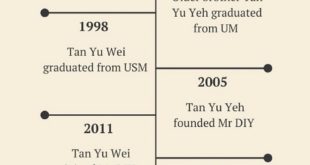Since end March, karaoke outlets and other entertainment venues in Singapore have been forced to close down following the government’s COVID-19 advisory.
According to the Accounting and Corporate Regulatory Authority (ACRA), 59 nightclubs, discotheques, dance clubs and karaoke outlets wound up in the first six months of the year as they struggled with zero income.
This is why the government announced yesterday (Nov 6) that some nightlife businesses will be allowed to resume operations under a new two- to three-month pilot scheme.
Selected nightlife venues will be able to reopen by December or January under strict safe management measures, such as wearing masks on the dancefloor or while singing, and showing proof of negative COVID-19 tests before entering.
Which Establishments Will Reopen?

The Ministry of Trade and Industry (MTI) and the Ministry of Home Affairs (MHA) said in a joint statement that they are “working with various nightlife business associations to identify a small number of nightlife establishments to participate in the pilots”.
They have been engaging key stakeholders, including the industry associations representing various groups of nightlife operators, and will allow the associations to nominate suitable establishments to participate in the pilot.
After that, they will jointly assess the nominated establishments, taking into consideration their proposals to implement the prescribed safe management measures, and their profile or type of business to ensure diversity among the establishments participating in the pilot.
The ministries said they may also consider establishments with economic or social significance that are strongly supported by other government agencies like the Singapore Tourism Board, but they will not consider independent applications from establishments that have not been nominated by the associations.
Pilot To Start By December Or January For Different Spots
The two-month pilot for pubs and bars is expected to start by December.
However, the pilot for karaoke establishments and nightclubs will only begin by January next year.

Customers entering the premises would have to test negative for Covid-19 within the last 24 hours via a polymerase chain reaction (PCR) test or an antigen rapid test (ART).
MTI and MHA said the tests may be implemented by the pilot establishments on-site, or as a requirement for customers to visit clinics providing this service before patronising the nightlife joints.
They added that the pilot for karaoke joints and nightclubs will also last longer for three months because more time is needed to assess the readiness of the industry to reopen.
This is in the light of “much higher risks and the more stringent safe management measures required”.

Strict safe management measures will include ensuring that all customers wear masks at all times, even while on the dance floor or singing at karaoke joints. They will only be allowed to remove the masks while eating and drinking.
In line with existing regulations, alcohol cannot be sold, served or consumed after 10.30pm too.
Additionally, closed-circuit television cameras covering all common areas and rooms used for activities will need to be activated.
Recordings from them, stored for at least 28 days, will be up for regular review by enforcement agencies. Those who breach the measures will not only face penalties under the Covid-19 (Temporary Measures) Act 2020, but may be removed from the pilot.
What About Those That Are Not Selected For The Pilot?

Nightlife establishments which are not participating in the pilots will get financial support packages to either pivot to food and beverage operations, or to exit with a one-off payment.
Nightlife businesses that wish to pivot to F&B or other commercial uses such as offices or gyms will be able to apply for a grant of up to S$ 50,000 from Enterprise Singapore (ESG) until March 31 next year.
This is to make up for costs incurred during the pivoting process, such as equipment and third-party consultancy costs.
For businesses that have already pivoted, ESG will extend support to them on a case-by-case basis.
Alternatively, businesses looking to exit can apply to ESG until March 31 next year for an ex gratia payment of S$ 30,000 to defray the costs of the cessation of business.
For any retrenchment benefits paid to local employees, employers can also seek financial support for one month of salary paid to each employee.
If firms choose to receive either financial support package, they will not be allowed to participate in the pilot programme, or any subsequent resumption of nightlife operations for least 12 months.
Firms are advised to contact the Singapore Nightlife Business Association (SNBA), which is working closely with MTI and ESG to provide support for the nightlife industry.
Featured Image Credit: Reuters



